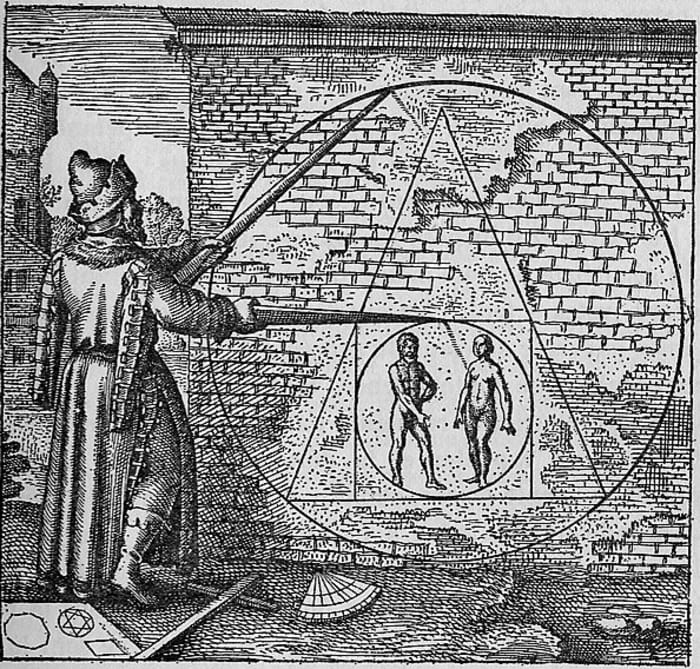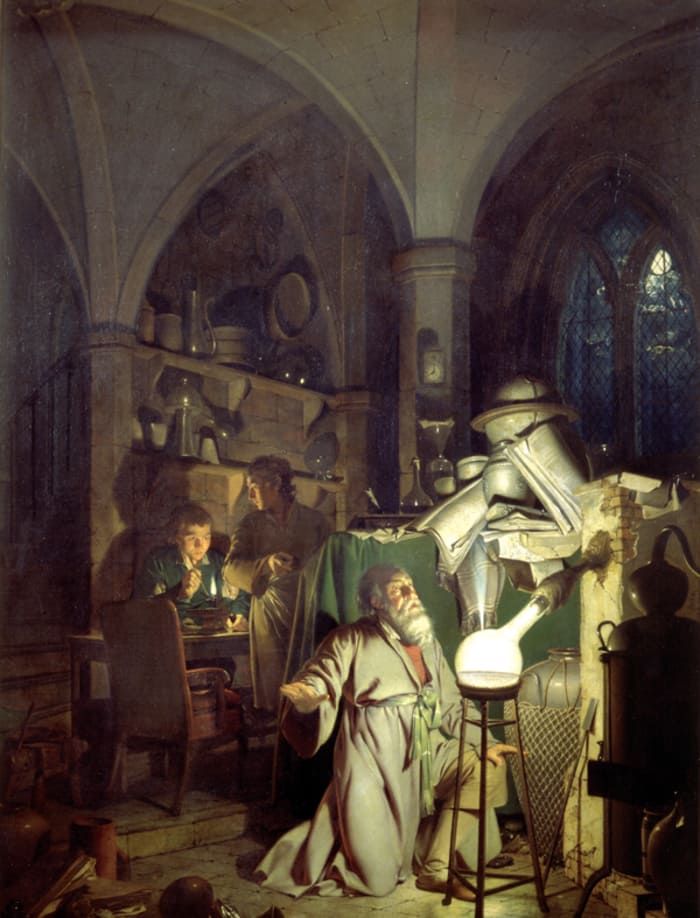What is the philosopher’s stone?
Did the alchemists succeed
The philosopher’s stone, and also the stone of wisdom, was the name that medieval alchemists gave to a substance that has the ability to transform base metals into the noblest of metals – gold. For centuries, scientists were possessed by the idea of creating this divine elixir, which could heal people from disease and grant them immortality.
How the idea of the philosopher’s stone came about
When the science of alchemy first arose, its followers believed that the miraculous substance with the ability to turn tin and copper into gold was a stone. However, over time this belief changed, and medieval scientists began to work on creating a powder or a liquid elixir.

Alchemists believed that the magical substance could be created by adding and mixing compounds encountered in nature – primarily sulfur and mercury were used.
The labors of alchemists were not in vain Thanks to the constant efforts of alchemists to create the philosopher’s stone, the modern science of chemistry arose.

In their constant efforts to obtain the long-awaited miraculous elixir, medieval scientists made many important discoveries during their laborious quests:
• they discovered nitric, sulfuric and acetic acid;
• they created alcohol;
• they obtained new salts;
• they compiled the first system of chemical elements in the world;
• alchemists discovered new substances – antimony and arsenic;
• they discovered zinc and bismuth, and also the non-metals of sulfur and carbon.
Famous alchemists
Great minds labored tirelessly to find the philosopher’s stone. Here are just a few of the renowned progressive alchemists who made their contribution to developing the science:
- Albertus Magnus investigated minerals, studied philosophy and conducted experiments on non-organic chemistry, and was quite ahead of his time. He was the author of the famous treatise “On Alchemy”. He believed that the philosopher’s stone would mature if you used the right components.
- Arnoldus de Villa Nova – a brilliant mind of his time, who gave audacious lectures at the university in Paris. Contemporaries believed that he had succeeded in discovering the philosopher’s stone.
- Ramon Llull was known as the greatest alchemist of all time. He claimed that he had achieved the transmutation of base metals into gold.
- Paracelsus was a renowned alchemist and doctor who created new medicines while studying magic. He spent many years looking for the philosopher’s stone, which he wanted to use to heal people.
- Nicolas Flamel – an ordinary craftsman who became fabulously wealthy, claiming that he had found the secret of the philosopher’s stone.

Facts about alchemy
Alchemy did a great deal for the development of science, but it gradually became a hindrance to scientific research and deteriorated. There are still people today who devote their time to this old lore, and some even try to make the philosopher’s stone in their homes. Before we try to do this ourselves, let’s look at the theory of creating this material. The old alchemists believed that the known metals simply grew in the ground, gradually maturing. They believed that sulfur took an active part in this process. Gold was considered to be a “mature” metal, and iron an “immature” metal.
How to obtain the philosopher’s stone
Alchemists believed that “healthy” sulfur of a red color was present in gold, and white sulfur was present in silver. When spoiled red sulfur came into contact with silver, copper was formed, while black sulfur could “conceive” lead. Thus, types of sulfur influenced the sort of metal obtained as a result.
To help a metal to attain the required condition, alchemists carried out thorough treatment of the element. As a result of these experiments, alchemists made new scientific discoveries. Sometimes they were called witches and persecuted. In those dark times scientists were even burned at the stake.
The general public still wonders whether it is possible to create the philosopher’s stone. No metal transforms into another metal when it reacts with sulfur. They can find out for themselves if they devote a lot of time to science and conduct chemical experiments, but the answer will still be no. But you can conduct original experiments at home and feel yourself the true alchemist.